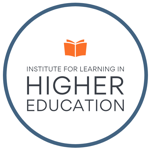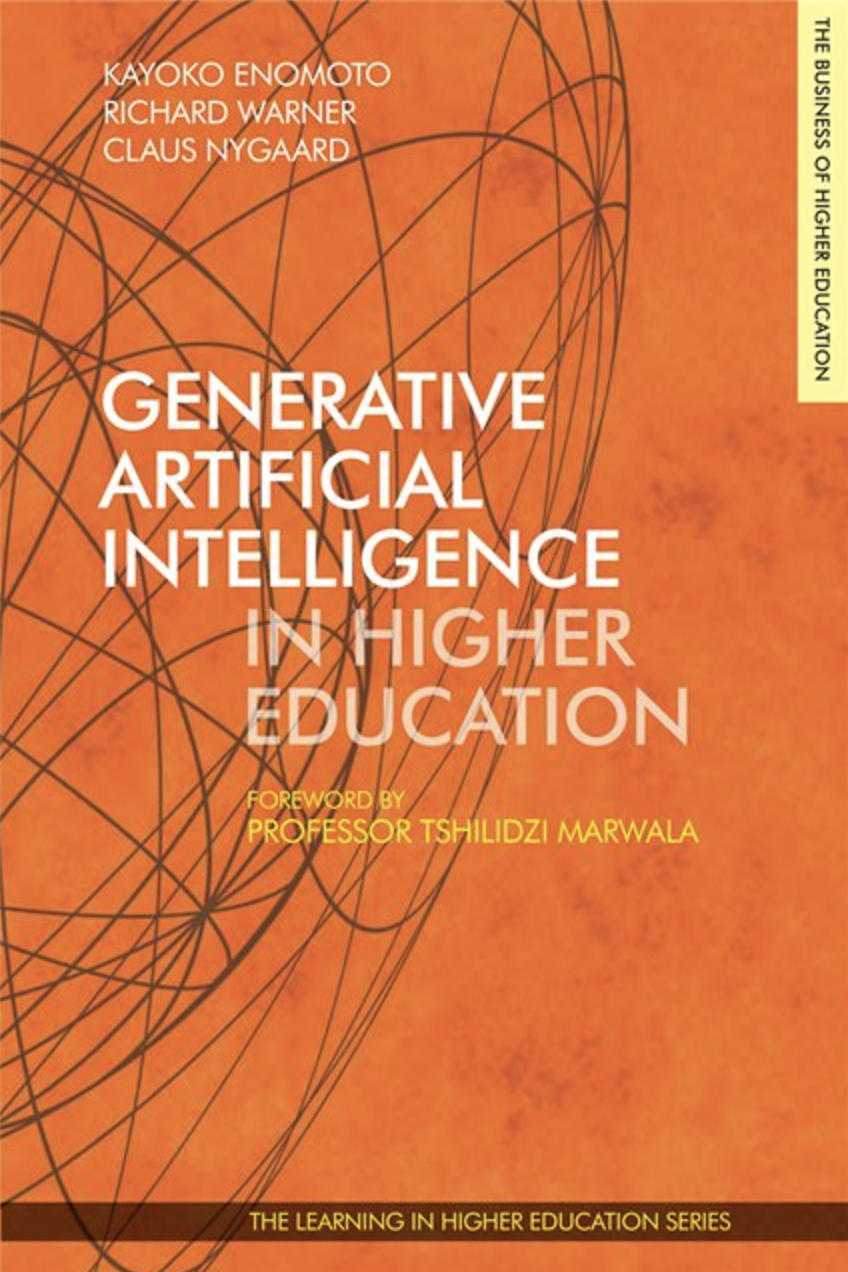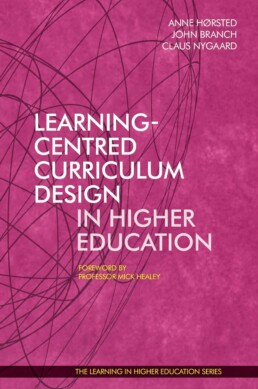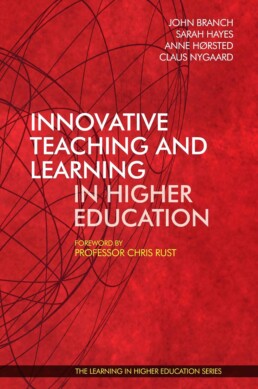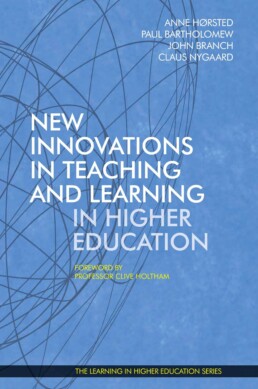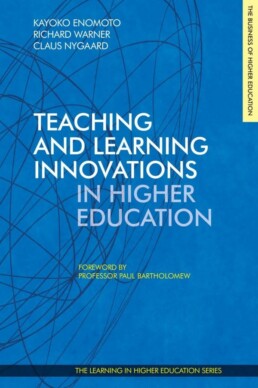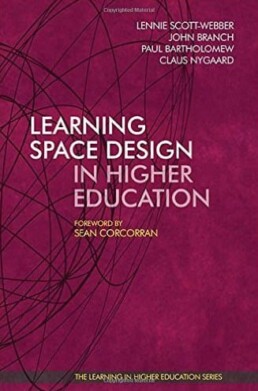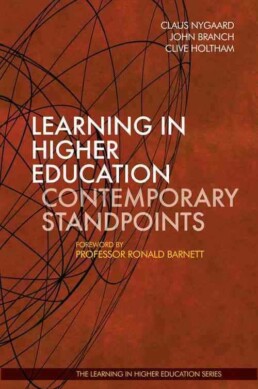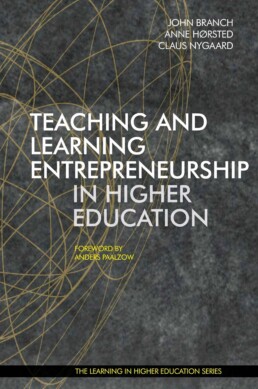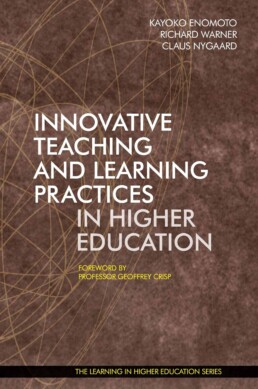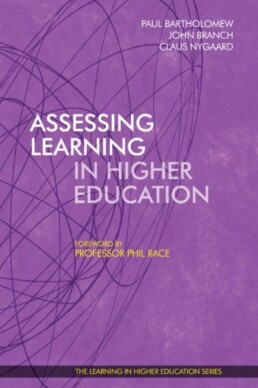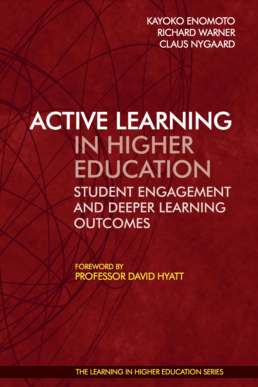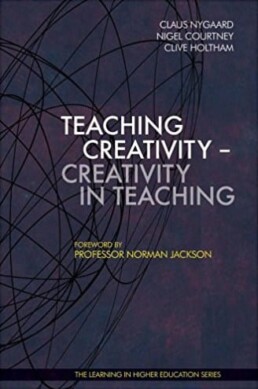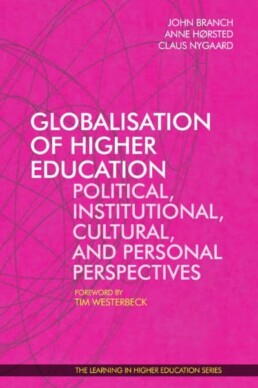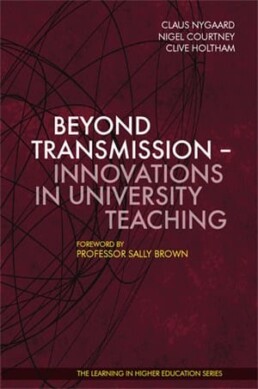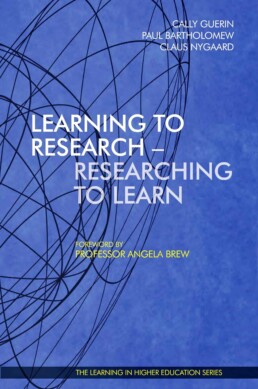Generative Artificial Intelligence in Higher Education
How will the Generative AI revolution redefine higher education?
As Generative AI accelerates its impact on the educational landscape, Generative Artificial Intelligence in Higher Education provides a visionary roadmap for university professionals to navigate this transformative era. Through inspiring case studies, expert analysis, and well-grounded learning theories, this book reveals how Generative AI can empower educators to personalise learning, promote inclusivity, and elevate pedagogical innovation. At the same time, it tackles the ethical dilemmas and practical challenges posed by adopting AI, offering actionable strategies for institutions committed to progress and integrity.
Key highlights include: Practical insights into integrating AI tools to enhance student engagement and learning outcomes. – Theoretical frameworks to guide AI’s responsible and effective use in education. – Strategies for institutions to scale AI, improve efficiency, and remain globally competitive.
With contributions from leading scholars worldwide, this book is a vital resource for academics, administrators, and policymakers who aspire to harness AI’s potential while upholding the principles of ethics, equity, and excellence in education.
Why should you read this book? Because AI will transform the future of higher education. As AI reshapes the academic landscape, this book equips you with the knowledge and tools to lead your institution and students into an innovative and equitable future.
Prepare to engage, inspire, and lead in the AI-enabled academic era.
About the Editors
Kayoko Enomoto is Associate Professor and Deputy Dean, People and Culture in the Faculty of Arts, Business, Law and Economics at the University of Adelaide, Australia. Her research directly informs a range of strategies to improve student learning and engagement beyond disciplinary boundaries. She has published extensively in these areas, and the sustained impact of her pedagogical practices on the practice of others has earned her multiple teaching excellence awards. Kayoko is also a Senior Fellow of the Higher Education Academy (SFHEA).
Richard Warner is Adjunct Lecturer in the School of Education in the Faculty of Arts, Business, Law and Economics at the University of Adelaide, Australia. Richard has published widely in the higher education field, including the edited volumes: Enhancing Student Learning Outcomes in Higher Education (2023), Active Learning in Higher Education (2022), Teaching and Learning Innovations in Higher Education (2021) and Innovative Teaching and Learning Practices in Higher Education (2018) by Libri Publishing Ltd.
Claus Nygaard is Professor and Executive Director of the Institute for Learning in Higher Education. In 2010, he was appointed as Professor in Management Education at Copenhagen Business School, where he also received an award for excellence in teaching. Claus has been involved in numerous innovation projects in teaching and learning in higher education including novel approaches to case-based learning, e-learning, problem-based learning and practice-based learning, as well as the development and programming of learning software.
Pages: 376
Published: 2024
ISBN: 978-1-911451-34-1
Publisher: Libri Publishing Ltd.
88 in stock
Description
Generative Artificial Intelligence in Higher Education
How will the Generative AI revolution redefine higher education?
As Generative AI accelerates its impact on the educational landscape, Generative Artificial Intelligence in Higher Education provides a visionary roadmap for university professionals to navigate this transformative era. Through inspiring case studies, expert analysis, and well-grounded learning theories, this book reveals how Generative AI can empower educators to personalise learning, promote inclusivity, and elevate pedagogical innovation. At the same time, it tackles the ethical dilemmas and practical challenges posed by adopting AI, offering actionable strategies for institutions committed to progress and integrity.
Key highlights include: Practical insights into integrating AI tools to enhance student engagement and learning outcomes. – Theoretical frameworks to guide AI’s responsible and effective use in education. – Strategies for institutions to scale AI, improve efficiency, and remain globally competitive.
With contributions from leading scholars worldwide, this book is a vital resource for academics, administrators, and policymakers who aspire to harness AI’s potential while upholding the principles of ethics, equity, and excellence in education.
Why should you read this book? Because AI will transform the future of higher education. As AI reshapes the academic landscape, this book equips you with the knowledge and tools to lead your institution and students into an innovative and equitable future.
Prepare to engage, inspire, and lead in the AI-enabled academic era.
About the Editors
Kayoko Enomoto is Associate Professor and Deputy Dean, People and Culture in the Faculty of Arts, Business, Law and Economics at the University of Adelaide, Australia. Her research directly informs a range of strategies to improve student learning and engagement beyond disciplinary boundaries. She has published extensively in these areas, and the sustained impact of her pedagogical practices on the practice of others has earned her multiple teaching excellence awards. Kayoko is also a Senior Fellow of the Higher Education Academy (SFHEA).
Richard Warner is Adjunct Lecturer in the School of Education in the Faculty of Arts, Business, Law and Economics at the University of Adelaide, Australia. Richard has published widely in the higher education field, including the edited volumes: Enhancing Student Learning Outcomes in Higher Education (2023), Active Learning in Higher Education (2022), Teaching and Learning Innovations in Higher Education (2021) and Innovative Teaching and Learning Practices in Higher Education (2018) by Libri Publishing Ltd.
Claus Nygaard is Professor and Executive Director of the Institute for Learning in Higher Education. In 2010, he was appointed as Professor in Management Education at Copenhagen Business School, where he also received an award for excellence in teaching. Claus has been involved in numerous innovation projects in teaching and learning in higher education including novel approaches to case-based learning, e-learning, problem-based learning and practice-based learning, as well as the development and programming of learning software.
Pages: 376
Published: 2024
ISBN: 978-1-911451-34-1
Publisher: Libri Publishing Ltd.
